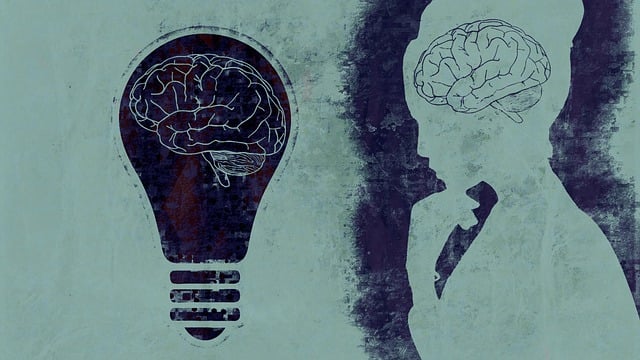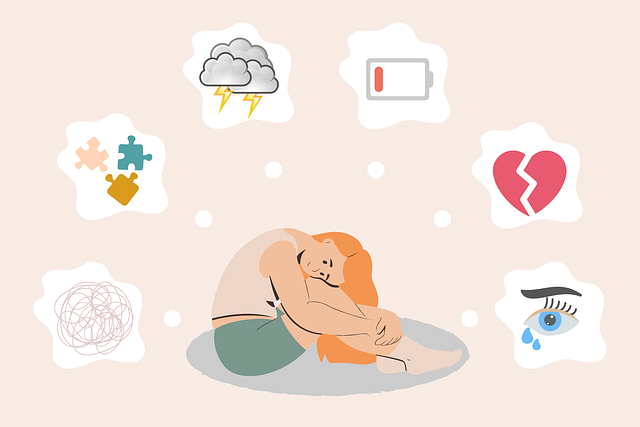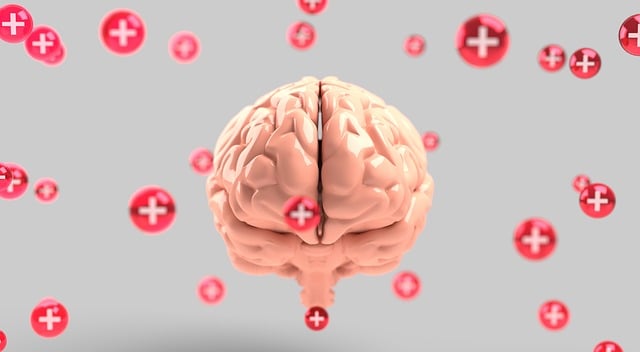Oppositional Defiance Disorder (ODD) is a behavioral disorder in children, characterized by defiant behavior towards authority figures, impacting relationships and academic performance. Treatment often includes behavioral therapy, CBT, and coping strategy education. Mindfulness meditation emerges as a powerful alternative, teaching self-regulation, emotional intelligence, and positive thinking skills. Implementing mindfulness involves a structured approach with consistent daily sessions, empathy-building strategies, and progress monitoring. Benefits include reduced stress, improved focus, and better sleep for both children and adults with ODD. Parents can support their child's mental health by integrating mindfulness into home routines alongside professional therapy.
Mindfulness meditation is emerging as a powerful therapy for children struggling with Oppositional Defiance Disorder (ODD). This article explores how mindfulness can help kids manage impulsive behaviors and improve emotional regulation. We’ll guide you through understanding ODD’s impact, introducing mindfulness as a therapeutic approach, and providing a step-by-step plan to implement it effectively. Learn benefits, challenges, and practical tips for fostering healthy habits at home, offering valuable insights into this transformative practice for children with ODD.
- Understanding Oppositional Defiance Disorder (ODD) and its Impact on Children
- Introducing Mindfulness Meditation as a Therapeutic Approach
- Step-by-Step Guide to Implementing Mindfulness Meditation for Kids with ODD
- Benefits, Challenges, and Tips for Effective Mindfulness Practice at Home
Understanding Oppositional Defiance Disorder (ODD) and its Impact on Children

Oppositional Defiance Disorder (ODD) is a behavioral disorder commonly diagnosed in children and adolescents, characterized by frequent and consistent defiant, hostile, or irritable behavior toward authority figures. This can manifest as arguments with parents or other adults, active rejection of rules, and angry or resentful attitude. ODD significantly impacts a child’s functioning at home, school, and within social circles, often leading to difficulties in relationships and academic performance.
Children with ODD may struggle with emotional regulation, making it challenging for them to manage and reduce stress. This can contribute to heightened irritability and difficulty following instructions. Therapy for Children Oppositional Defiance Disorder typically involves behavioral therapy, cognitive-behavioral therapy (CBT), or a combination of both. These approaches aim to teach children coping strategies, improve communication skills, enhance self-esteem, and promote better decision-making, thereby reducing defiant behaviors and fostering positive relationships with peers and authority figures. Support from parents and consistent implementation of strategies learned in therapy are crucial for successful outcomes, including Stress Management Workshops Organization and Mental Wellness Coaching Programs Development that can offer additional tools for burnout prevention.
Introducing Mindfulness Meditation as a Therapeutic Approach

Mindfulness meditation has emerged as a powerful therapeutic approach, offering a calm and effective solution for various mental health challenges, including Oppositional Defiance Disorder (ODD) in children. This ancient practice involves training the mind to focus on the present moment, cultivating awareness, and accepting thoughts and feelings without judgment. By integrating mindfulness into daily routines, parents and caregivers can support children in developing essential skills for self-regulation, emotional intelligence, and positive thinking—all of which contribute to improved mental wellness.
Incorporating mindfulness meditation into a child’s self-care routine development can be transformative. It teaches them to become more attuned to their senses, emotions, and thoughts, fostering a deeper understanding of themselves. This practice has been shown to enhance overall mental health, promoting better coping strategies and reducing symptoms of ODD. Through guided meditations tailored for children, they learn valuable tools to navigate stressful situations, improve focus, and cultivate a sense of inner peace—benefits that extend far beyond the meditation cushion.
Step-by-Step Guide to Implementing Mindfulness Meditation for Kids with ODD

Implementing mindfulness meditation as a therapy for children with Oppositional Defiant Disorder (ODD) can be a transformative process. Here’s a step-by-step guide to help kids integrate this practice into their daily lives, fostering mental wellness and improving behavior.
1. Risk Assessment: Begin by assessing the child’s risk factors and current emotional state through discussions or a mental health professional’s guidance. This ensures safety and prepares them for the practice.
2. Introduce Mindfulness Conceptually: Start with simple language and analogies to explain mindfulness. Teach them that it’s about paying attention to the present moment without judgment, just like observing their breath or bodily sensations. Use storytelling or examples relevant to their age group.
3. Demonstrate a Simple Meditation Exercise: Lead them through a basic meditation practice, such as focusing on the breath. Sit comfortably, close eyes, and encourage them to notice their thoughts without engaging with them. This can be accompanied by a soothing soundtrack for enhanced focus.
4. Incorporate Journaling Exercise Guidance: After each meditation session, have the child write about their experiences in a mental wellness journal. This helps process emotions and cultivates self-awareness. Encourage drawings or notes about what they noticed during the practice.
5. Practice Consistently: Consistency is key. Aim for short, daily sessions (around 5–10 minutes) to start, gradually increasing as they become more comfortable. Incorporate mindfulness into their routine by setting aside a specific time each day for practice.
6. Empathy Building Strategies: Integrate empathy-focused activities during meditation. Encourage them to imagine how others might feel in different situations, fostering emotional understanding and connection. This can enhance the therapeutic benefits of mindfulness.
7. Monitor Progress and Adjust as Needed: Regularly assess their progress through open conversations or structured risk assessments. Be flexible with the practice, adjusting techniques based on their evolving needs and responses.
Benefits, Challenges, and Tips for Effective Mindfulness Practice at Home

Mindfulness meditation offers a plethora of benefits for both mental health and overall well-being. Regular practice has been shown to reduce stress, improve emotional regulation, enhance focus, and promote better sleep. For children with Oppositional Defiance Disorder (ODD), mindfulness can be a powerful tool in therapy. It helps them develop self-awareness, manage anger, and improve their ability to make positive choices. By integrating mindfulness into daily routines at home, parents can support their child’s mental health journey alongside professional treatments like Therapy for Children ODD.
Despite its advantages, mindfulness practice isn’t without challenges. Some may find it difficult to quiet the mind or stay focused during meditation. External distractions, such as noise or interruptions, can also impede progress. However, with patience and consistent effort, these hurdles can be overcome. Tips for effective at-home mindfulness include creating a calm environment, starting with short sessions, using guided meditations, incorporating mindfulness into daily activities like eating or walking, and practicing self-compassion. Incorporating Stress Reduction Methods and Mental Health Education Programs Design within the family routine can further strengthen these practices and contribute to a more harmonious household.
Mindfulness meditation offers a promising therapy for children with Oppositional Defiance Disorder (ODD), providing a gentle and effective way to manage symptoms and foster positive behavioral changes. By implementing the step-by-step guide outlined in this article, parents and caregivers can introduce mindfulness as a practical tool at home, supporting their child’s emotional well-being and growth. While challenges may arise, the benefits of regular practice can be significant, leading to improved impulse control, enhanced self-awareness, and better coping strategies for kids struggling with ODD.














